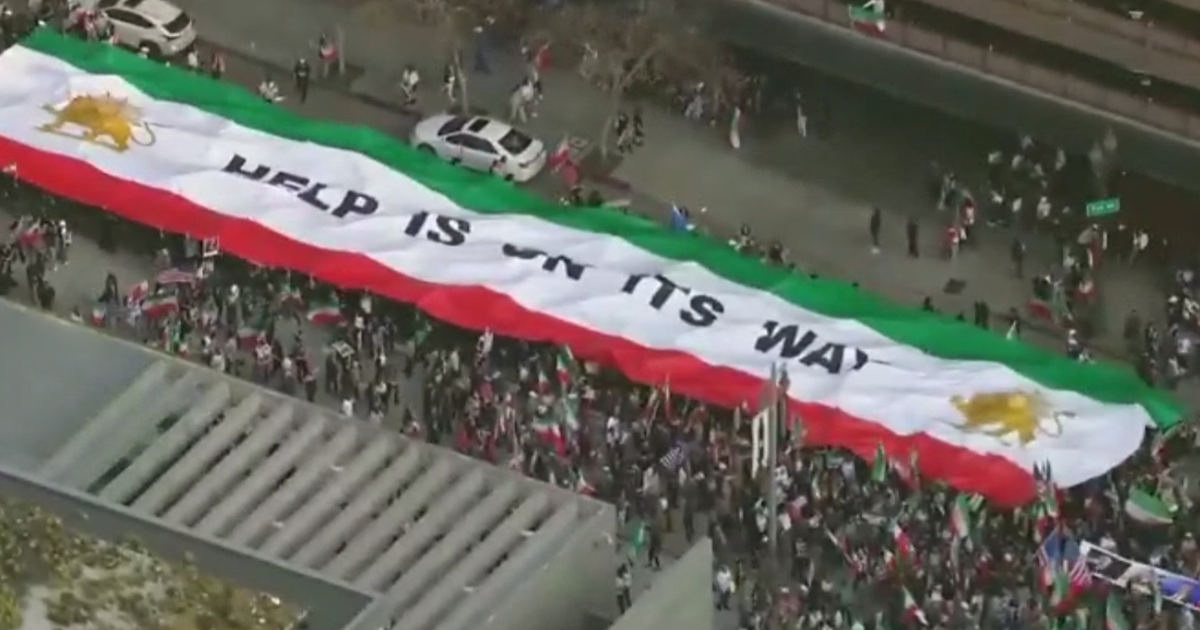Iran executes journalist Ruhollah Zam over his online work
Iran on Saturday executed a once-exiled journalist over his online work that helped inspire nationwide economic protests in 2017, authorities said, just months after he returned to Tehran under mysterious circumstances. Iranian state television and the state-run IRNA news agency said that Ruhollah Zam, 47, was hanged early Saturday morning.
A court sentenced Zam to death in June, saying he had been convicted of "corruption on Earth," a charge often used in cases involving espionage or attempts to overthrow Iran's government.
Zam's website AmadNews and a channel he created on the popular messaging app Telegram had spread the timings of the protests and embarrassing information about officials that directly challenged Iran's Shiite theocracy.
Those demonstrations, which began at the end of 2017, represented the biggest challenge to Iran's rulers since the 2009 Green Movement protests and set the stage for similar mass unrest in November of last year.
The initial spark for the 2017 protests was a sudden jump in food prices. Many believe that hard-line opponents of Iranian President Hassan Rouhani instigated the first demonstrations in the conservative city of Mashhad in northeastern Iran, trying to direct public anger at the president. But as protests spread from town to town, the backlash turned against the entire ruling class.
Soon, cries directly challenging Rouhani and even Supreme Leader Ayatollah Ali Khamenei could be heard in online videos shared by Zam. Zam's channel also shared times and organizational details for the protests.
Telegram shut down the channel over Iranian government complaints it spread information about how to make gasoline bombs. The channel later continued under a different name. Zam, who has said he fled Iran after being falsely accused of working with foreign intelligence services, denied inciting violence on Telegram at the time.
The 2017 protests reportedly saw some 5,000 people detained and 25 killed.
The details of his arrest still remain unclear. Though he was based in Paris, Zam somehow returned to Iran and found himself detained by intelligence officials. He's one of several opposition figures in exile who have been returned to Iran over the last year.
France previously has criticized his death sentence as "a serious blow to freedom of expression and press freedom in Iran."
Reporters Without Borders, a group that campaigns for press freedoms, said Zam's hanging was a "new crime of Iranian justice."
A series of a televised confessions aired earlier this year over his work.
During an interview on July, Zam said he has lost some 30 kilograms (66 pounds) since his arrest in October 2019. He said following the arrest that he could meet his father after nine years and his mother and sister after some six years.
Zam is the son of Shiite cleric Mohammad Ali Zam, a reformist who once served in a government policy position in the early 1980s. The cleric wrote a letter published by Iranian media in July 2017 in which he said he wouldn't support his son over AmadNews' reporting and messages on its Telegram channel.
Zam's father on Saturday posted on his Instagram account that Iranian authorities had not notified his son that he had been sentenced to execution.




